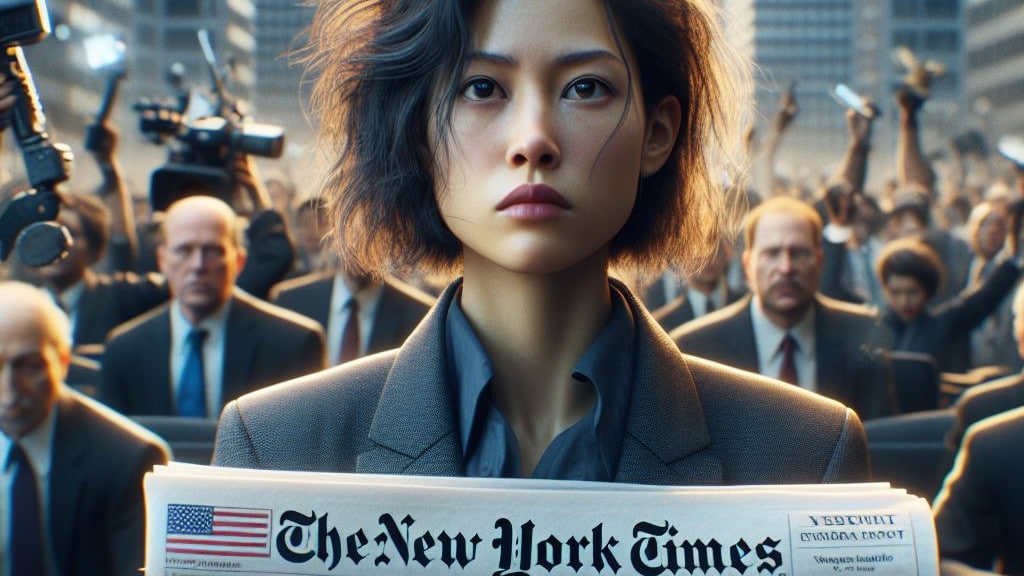The New York Times Files Lawsuit Against OpenAI and Microsoft Alleging Copyright Infringement


In Brief
The New York Times filed a lawsuit against OpenAI and Microsoft, alleging copyright infringement for using news articles without permission.

United States media organization and newspaper The New York Times filed a lawsuit against artificial intelligence (AI) research organization OpenAI and multinational technology corporation Microsoft, alleging copyright infringement. The complaint accuses both companies of utilizing millions of articles from the newspaper without permission for training AI technologies.
The New York Times is not specifying a particular amount for damages but contends that OpenAI and Microsoft have caused “billions of dollars” in harm. Additionally, the organization has requested the companies to eliminate chatbot models and training sets that include its content.
OpenAI — maintaining nonprofit status, experienced a substantial increase in revenue corresponding to the widespread adoption of ChatGPT. In March, the company made its most potent model, ChatGPT 4, available to the public, reportedly operating with 1.76 trillion parameters.
Creators Sue AI Companies for Copyright Infringement
The New York Times emerges as the initial major United States media organization to file a lawsuit against the entities behind ChatGPT concerning copyright matters.
Notably, novelists such as David Baldacci, Jonathan Franzen, John Grisham and Scott Turow have also sued OpenAI and Microsoft in a Manhattan court. Their claims suggest that AI systems could have utilized tens of thousands of their books.
In a separate case earlier this year, comedian Sarah Silverman filed a lawsuit against OpenAI and Meta Platforms in San Francisco, alleging the “ingestion” of her book “The Bedwetter” for ChatGPT.
AI Regulation In the United States
In the United States, the regulations governing AI are not formally implemented yet. However, the president Biden Administration issued an executive order in October outlining six new standards for AI safety and security, along with expressing its commitment to ethical AI use within the government.
Furthermore, the United States Secretary-General António Guterres declared the establishment of a 39-member advisory body, featuring tech company executives, government officials, and academics. The purpose of this advisory body is to address concerns related to the international governance of AI.
Ongoing legal battles against major AI companies highlight challenges in AI copyright infringement, adding complexity in the absence of formal regulations. This shapes a nuanced interaction between legal actions and the evolving AI landscape.
Disclaimer
In line with the Trust Project guidelines, please note that the information provided on this page is not intended to be and should not be interpreted as legal, tax, investment, financial, or any other form of advice. It is important to only invest what you can afford to lose and to seek independent financial advice if you have any doubts. For further information, we suggest referring to the terms and conditions as well as the help and support pages provided by the issuer or advertiser. MetaversePost is committed to accurate, unbiased reporting, but market conditions are subject to change without notice.About The Author
Alisa is a reporter for the Metaverse Post. She focuses on investments, AI, metaverse, and everything related to Web3. Alisa has a degree in Business of Art and expertise in Art & Tech. She has developed her passion for journalism through writing for VCs, notable crypto projects, and scientific writing. You can contact her at alisa@mpost.io
More articles

Alisa is a reporter for the Metaverse Post. She focuses on investments, AI, metaverse, and everything related to Web3. Alisa has a degree in Business of Art and expertise in Art & Tech. She has developed her passion for journalism through writing for VCs, notable crypto projects, and scientific writing. You can contact her at alisa@mpost.io






















































